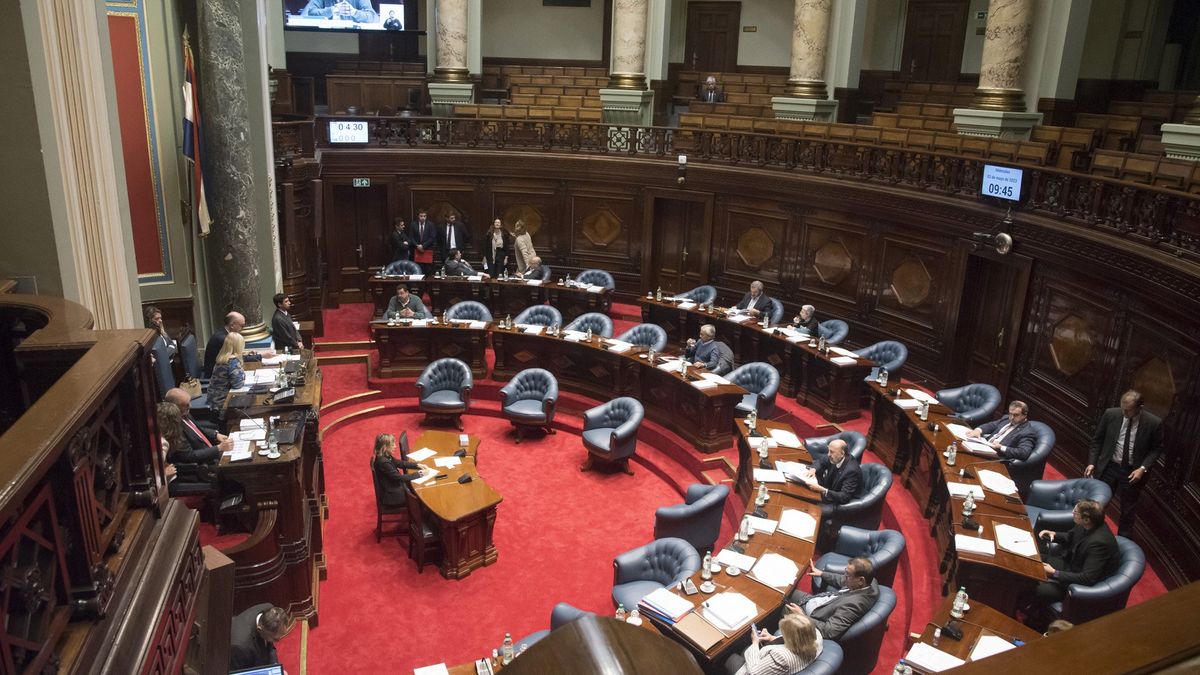The senator of the Frente Amplio, Charles Carrera, asked that the Penal Code not be modified further without a prior debate.
After criticism and the request for withdrawal by Association of Criminal Lawyers of Uruguay (AAP) of the bill in the Accountability that sought to modify the appeal process in trial evidence, the initiative was finally withdrawn from the discussion in the Senate.
The content you want to access is exclusive to subscribers.
The news was popularized by the senator of the Frente Amplio, Charles Carrera, who announced through his social networks that “coherence prevailed and the proposal to modify article 365 of the Criminal Procedure Code has just been withdrawn.” To this, the senator added that he would like to “know the brilliant mind that proposed it” and asked that the Procedural Penal Code (CPP) in the Accountability without prior debate.


https://publish.twitter.com/oembed?url=https%3A%2F%2Ftwitter.com%2FChCarreraLeal%2Fstatus%2F1707030391872245808&partner=&hide_thread=false
Notice: coherence prevailed and the proposal to modify article 365 of the Criminal Procedure Code was recently withdrawn.
It would be interesting to know the brilliant mind who proposed it.
Please no more to the CPP in a Surrender without discussion! Stop improvising!https://t.co/1fi9WzifXp— Charles Carrera Leal (@ChCarreraLeal) September 27, 2023
Previously, the Association of Criminal Lawyers of Uruguay had issued a statement rejecting the modification of article 365 of the Criminal Procedure Code where they established that the initiative went against the principles to which the system aspires and even against common sense.
The reasons for rejection
In the statement, they expressed that “the article regulates, among other aspects, the appeal system of the resolutions issued in the preparatory hearing of the oral trial or accusation control hearing, regarding the means of evidence that will be used in that oral trial”.
The modification intended that “the resolutions of the guarantee judge on the evidence at the control hearing of accusation will be appealable with deferred effect, to be discussed after the oral trial, that is, with the appeal of the final sentence, whether of acquittal or conviction, raised by the losing party.
In this sense, the criminal experts established that it does not make sense to carry out the oral trial stage without the “greatest guarantees, certainties and evidence”, without having to foresee that there is some evidence that will be rejected or admitted after the final ruling.
Furthermore, they claimed that the reform would waste “times and resources of prosecutors, judges and defenders”, added to the fact that they would harm “the rights of victims and defendants (by generating more uncertainty during the process), given that they will continue a trial with certain evidence that later a appeals court It may go so far as to say that they are not valid or that they should be admitted and that the sentence that was handed down be modified for that reason.”
Source: Ambito




